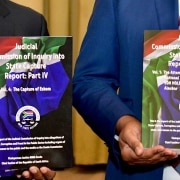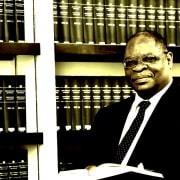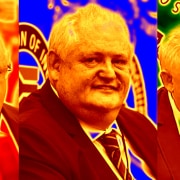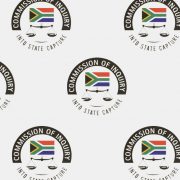|
Getting your Trinity Audio player ready...
|
By Valencia Talane
As I write this article, this was meant to be the first day of the return of former president Jacob Zuma before the commission of inquiry into state capture. The much-anticipated corruption trial he faces in the Pietermaritzburg High Court is a very important affair, says his attorney Eric Mabuza, who recently wrote to the commission to explain that this is why his client would not be appearing from 21 to 25 September as scheduled.
Commission chairperson Deputy Chief Justice Raymond Zondo has given Zuma until October to either confirm that he will be appearing on the re-scheduled dates of 16-20 November, or face a possible summons. Zondo’s legal team will apply for permission on 9 October to issue a summons, if the former president again rejects the commission’s set dates.
Can Zuma continue to say andizi (I’m not coming)?
Ahead of the resumption of hearings in June – after they had been halted during the hard lockdown – Zondo called a media conference to bring journalists up to date on the commission’s intentions for the remainder of the year.
He named Zuma among the first witnesses expected to make an appearance after the start of proceedings at the end of June. This is after several attempts to get him back on the witness stand had proven futile, until the September dates were set down, of course.
Zuma appeared in July last year, with no affidavit or statement, to answer several “clarity-seeking questions” from the commission arising from the evidence of witnesses who had implicated him in varying contexts, largely stemming from his relationship with the Guptas.
To date he has not provided an affidavit in response to allegations against him brought before Zondo. The chairperson announced on Monday 21 September that he had issued a directive for Zuma to provide one in respect of the affidavits relating to Eskom, from former chairperson Zola Tsotsi and private consultant Nick Linnell. Their evidence is that a meeting happened at Zuma’s official Durban home in early March 2015 that resulted in the suspension, days later, of four of the power utility’s executives.
Ducking and diving
The “Zuma week” last year was cut short when counsel Advocate Muzi Sikhakhane withdrew his client from the proceedings, citing bias in the line of questioning by the commission’s Advocate Paul Pretorius. A special arrangement was made, with an agreement in principle Zuma would return, provided both sides adhered to certain conditions. He never did. Later in the year, his lawyers cited ill health and later his corruption trial in the Pietermaritzburg High Court as reasons for his failure, on two separately arranged occasions, to appear.
A bolder move by the commission in January this year to summons Zuma was also met with a rebuff: he was too ill and planning to get medical care overseas, and the commission was wrong to imply that he was dodging the process. For the most part, whatever discussions that happened on the issue did so behind closed doors for the rest of the first half of the year, until Zondo’s announcement in June in connection with the restart of hearings.
Advocate Thabane Masuku, another member of Zuma’s legal team, noted in his argument in January that a public announcement, through a media statement from the commission, created an unfortunate impression that his client was dodging the process and not co-operating, despite his numerous assertions to the contrary. Masuku called on Zondo’s legal team “to extend Mr Zuma a presumption of integrity.”
Andizi, andizi, andizi
All indications from Zuma, however, have been that he has invoked the popular colloquial term “andizi”. Not “I’ll think about it” or “what’s in it for me”, but “I am not coming.” His lawyers reason after the commission’s second attempt this year, that the altered rules of the commission would be an impairment on him, seeing as he is facing a criminal trial.
Constitutional law analyst Pierre de Vos recently opined in an interview with eNCA that this reason alone cannot stand. “You cannot use the testimony at Zondo before a criminal court, because you have a right to remain silent in criminal proceedings. So if you can use that, that could be a limitation on that right. That’s why the commission rules say that you cannot use it.”
But the new rules could very well be the motivation behind several other implicated persons are pulling an andizi. Further analysis from other quarters has been that because of Zuma’s attitude towards the commission, other implicated persons tend to follow suit, using legal tactics to delay their appearance.
Earlier this month, just before the testimony of Gina Pieters, Angelo Agrizzi’s former personal assistant, Deputy Chief Justice Raymond Zondo noted that she was “one witness who is very happy to be here.” A beaming Pieters politely thanked Zondo for the comment before starting with her testimony on the annual tradition of Bosasa bosses sending birthday gifts to former cabinet minister Nomvula Mokonyane.
Zondo’s comment was not at all loaded, and had more to do with Pieters’s disposition that morning than anything else. But he was spot on about the different attitudes among witnesses, as many other people who have been called to testify before him would very much prefer not to, for fear of the implications involved.
No more Mr Nice Guy
It’s crunch time for the commission, and everybody knows it, including those who, like Zuma, see no personal gain in appearing on live television to defend their name against their accusers. Furthermore, the records of such an important legal process have direct impact on how law enforcement agencies may proceed in advancing criminal action against those found wanting.
So commonplace were applications for postponement of evidence in this leg of the commission’s work, that Zondo declared in July that from then on, all implicated parties would be issued with subpoenas and not the gracious invites that have been sent to date. The commission’s rules are such that even if a legal representative makes the necessary arrangements to apply for a postponement, the witness is required to be present at that time in case the application is dismissed, so they can give their evidence.
But several no-shows have caused an irritated Zondo to utter stern words.
Such befell the likes of Public Enterprises Minister Pravin Gordhan, whose lawyers told the commission on the day that he was meant to be cross-examined by former Sars commissioner Tom Monyane, that he had Cabinet duty and could thus not appear.
“Cabinet on its own cannot be more important than him appearing before this commission. There would need to be something more,” said Zondo on the day.
The chairperson was equally irritated by Pretoria High Court Judge Nana Makhubele‘s repeated attempts to have her appearance postponed. She’d been implicated in Prasa evidence for her alleged irregular involvement in procurement issues at the rail agency soon after being appointed to chair its board in 2017. She was ordered at the end of July to appear on 3 August, and even then applied for a postponement, which was denied. She then asked for evidence leader Advocate Vas Soni to recuse himself, on the basis of his past handling of Makhubele’s interactions with the commission.
Senior Free State government officials Nthimotse Mokhesi and John Matlakala too had postponement applications heard in July. Their appearances have to do with the R255-million asbestos eradication project out of which multi-layered contractor arrangements siphoned millions of rands without the project taking off. Mokhesi has since appeared.
Another notable dodger is Mbongseni Majola, the former programme manager at Mhlathuze Water Board who is accused of facilitating a money laundering scheme that cost the entity millions of rands between 2015 and 2016. He has twice asked for a postponement, first in February and again in July. He was implicated by an in-camera witness in February who placed him at the centre of the alleged scheme, which he said had the blessing of former SAA chairperson Dudu Myeni.
Zondo has remarked on numerous occasions that the commission cannot afford delays, as it’s expected to complete with the oral evidence in December, to give his team time to write up its report ahead of the March 2021 deadline.
The commission, he says, is willing to even sit in the evenings if it means all relevant evidence will be heard.
So, andizi may work only so far as to buy time for those who need it, but the important work of the commission cannot be undermined forever, and without consequences. The above-mentioned dodgers are not the only ones, and there is no doubt that in this round of the game, where implicated parties have to answer to their accusers, there will be more.







